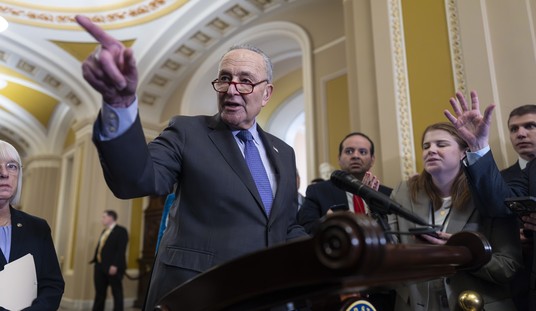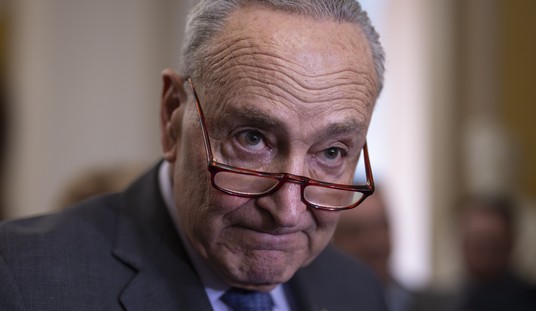Megan McArdle argues that today’s “spanking-free” childrearing systems have been purchased at the cost of regimenting childhood. In place of “management by exception” where transgressions were punished by blow to the seat of the pants, children are now watched, rewarded or subtly discouraged until “they are quite old”. But whether this is an improvement is open to debate. As we are now learning today’s “organization kids” have problems of their own.
My grandmother literally never worked outside the home a day in her life. But she would have been bewildered by the intensive parenting of today’s “stay at home Moms”. When my mother got home from school, my grandmother gave her a cookie and told her to go outside and play. She was not supposed to come back until dinner–rain or shine, sleet or snow…
To be sure, my mother was actually quite well watched–by all the other mothers on the block. But while you could be quite sure that an adult would report it if they saw your kid doing something really wrong, it’s much less likely that they’re going to tell you that Sally deserves her tidyness gold star for the afternoon because she threw her litter in the garbage can.
All that monitoring and incentivizing probably is better at turning out kids who are able to successfully negotiate the hierarchical American university system. But crotchety as I am, I find it sort of creepy–and anecdotally, as the first generation of what David Brooks calls “Organization Kids” enters the workforce, employers are apparently complaining that they have an outsized sense of entitlement combined with a difficulty coping with unstructured tasks. Obviously, I’m not advocating a return to an era of brutal beatings. But I’d like to think that there’s some alternative to raising children in a sort of well-padded, benevolent police state where no action is too small or large that it can’t be managed with an appropriately placed gold star.
The young have long explored the world in feckless ways. Because if they didn’t — at least to a certain extent — they wouldn’t be young. Moreover they would never have learned to cope with the real risks and dangers in it in order ready themselves when their time for leadership came. Not every kid made it through, but traditional societies were resigned to paying the price and large broods were compensations for the wastage.
Today the watchword is to take no chances. Whatever benefit came from climbing trees unsupervised was far outweighed by the crushing legal penalties that would descend on the nearest adult if such an unspeakable thing were allowed to happen. The application of health and safety rules in Britain resulted in one case of the removal of every apparatus — the slide, swing and rocking horse were all carted away — leaving only a plastic motorcycle scooter in the playground moored to a block of concrete, probably pending the analysis of its paint, after which it too may be removed.
Is that progress? Some think so, although McArdle has her doubts.
Doubtless the spanking vs non-spanking stereotypes that McArdle describes applies only a certain strata of society. As others have observed, in many inner city contexts, the “gold star for tidiness” counts for little in what has been called a public-school-to-prison pipeline. In that unionized system where teachers cannot risk disciplining the kids, there are “more police in America’s schools.”
A survey by the Justice Police Institute released last month found a 37 percent increase in the number of law enforcement personnel (called school resource officers, or SROs) employed by public schools between 1997 and 2007, including more than 5,000 such officers in New York City schools alone. The increase in SROs, also driven by federal funding, was in part influenced by media-driven hysteria over a few highly publicized school shootings in the 1990s.
There have also been a number of stories in the news of late about pre-adolescent children arrested for absurdly minor offenses, including a 6-year-old Wisconsin boy arrested for “playing doctor” with a 5-year-old girl, a 12-year-old arrested in Memphis for not wearing his helmet at a skateboard park, a 13-year-old boy arrested in New Mexico for burping in gym class (his parents’ lawsuit also revealed the arrest of a 7-year-old girl who refused “to sit next to the stinky boy” in class), a 10-year-old Connecticut boy arrested for giving a classmate a “wedgie,” and a 5-year-old who was bound at the wrists and ankles, arrested and charged with assault after kicking a police officer in the leg.
Taken together, these studies and anecdotes suggest a troubling trend of putting kids in handcuffs for doing the sorts of things kids have always done. This has spurred concern over a burgeoning “school-to-prison pipeline” problem in which children — particularly poor, minority and at-risk children –are funneled from public schools into the criminal justice system. In response, the Justice Department and the Department of Education launched a joint initiative last July that aims to combat this trend. …
All of these programs were enacted in the name of protecting children. But without the tools to assess their actual impact, it’s impossible determine whether they are actually working, or doing more harm than good.
It seems like a bad bargain. The benefits of of turning childhood into a junior version of a modern PC university comes at a price. You can do away with spanking, but only by putting surveillance cameras and databases everywhere. You can strip teachers of the power to rap the students on the knuckles with a ruler, but only if you put a precinct house in every schoolyard.
Perhaps our parents and grandparents were right: there is no free lunch. With the freedom the climb trees and explore the local swimming hole came danger; a danger we can no longer countenance. But our precautions have not banished risk, only shifted it to other forms. Try as we might to amend it, the earth remains a perilous place.
Recently I heard the sad news that my wife’s friend had lost her son in a swimming accident off a beach. He had been scheduled to graduate from college next year. I said, “it makes a parent want to die; to follow as quickly as possible to wherever his son has gone.” Then I added after a silence, “but the young have always been careless of their lives. It comes with the turf. As you get older you look back and marvel at how stupid and feckless you were. But is there any other way?”
Maybe not.
As each of us gathers for Christmas, sets the table and puts presents under the tree, our celebrations are always informed by the unstated realization that this occasion might our last together. That can’t be helped. But that irremovable cloud, that fact of the human condition should not dampen our time together so much as enrich it. Our time with those we love is truly a gift. Risk will always be with us. The chance to show our love, by contrast, may not always be there.
To live is a dangerous thing. The universe is a mysterious place. Maybe there’s a present in it for us somewhere, but we’ll have to look to see. There’s an old chestnut that is sometimes told.
A man fell off a mountain and, as he fell, saw a branch and grabbed for it. By superhuman effort he was able to get a precarious grip on it. As he was hanging there for dear life, he looked up and cried out, “Is anybody there?”
A deep majestic voice answered, “Yes my son, I am here. What do you need?”
“Help me!” cried the man.
“I will help you”, said the voice, “Just let go of the branch and you’ll be safe. All you have to do is trust.”
The man thought for a moment and cried out:
“Anybody ELSE up there?”
Merry Christmas, everybody.
Storming the Castle at Amazon Kindle for $3.99
No Way In at Amazon Kindle $3.99, print $9.99
Tip Jar or Subscribe for $5










Join the conversation as a VIP Member